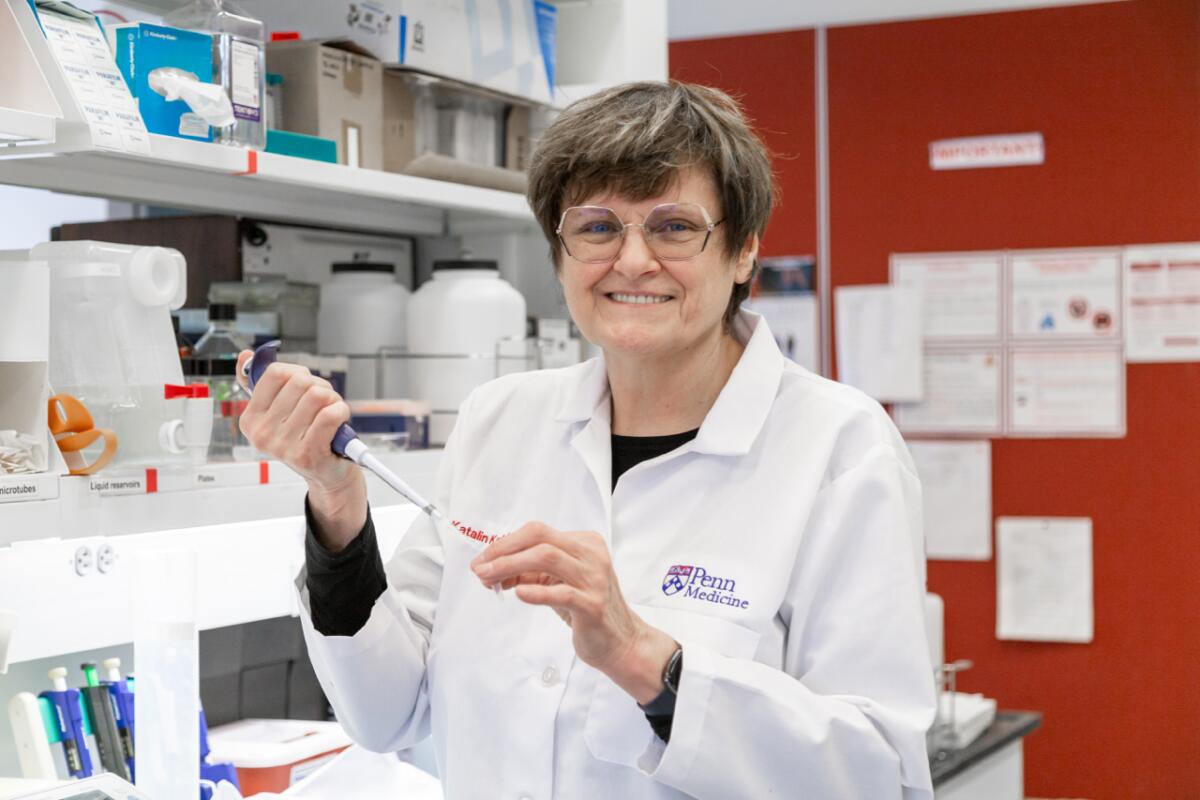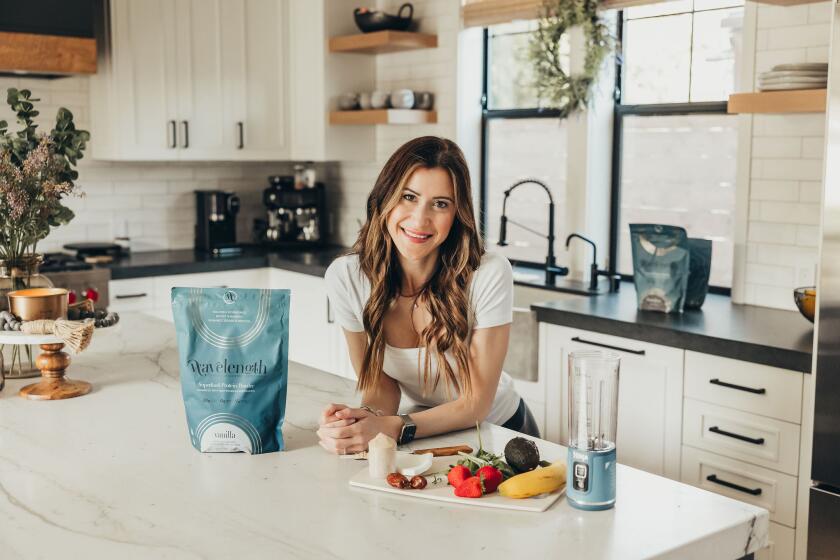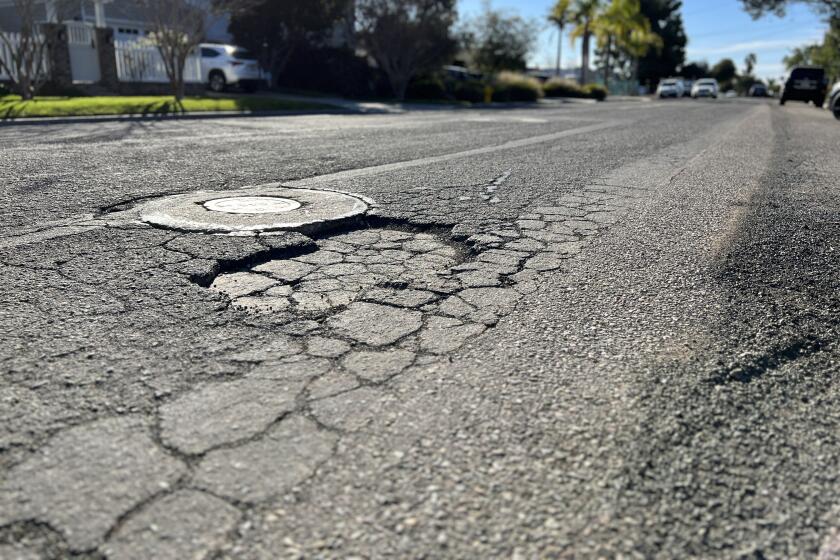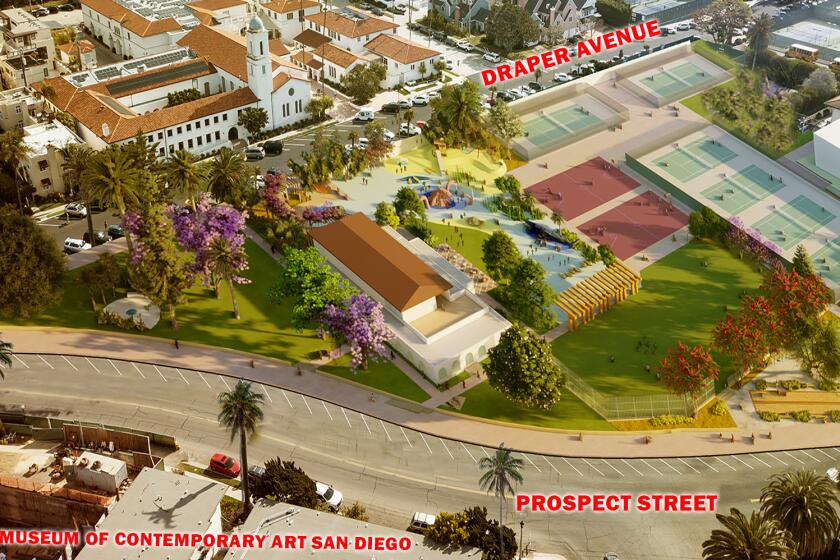Scripps Oceanography’s Nierenberg Prize goes to scientist for role in COVID-19 vaccine development

Katalin Karikó, a 2023 Nobel Prize winner, had decades of work with mRNA before helping to use it to develop a coronavirus vaccine.
During the COVID-19 pandemic, the world was introduced to all kinds of new words and phrases such as “social distancing” and “hopping on a Zoom call.”
And while “mRNA,” short for messenger RNA, might have been a new term to many, for people in the scientific community, it’s far from new.
For her work on COVID-19 vaccines using mRNA, biochemist and Nobel Prize winner Katalin Karikó has been named the recipient of the 2023 Nierenberg Prize for Science in the Public Interest, presented by UC San Diego’s Scripps Institution of Oceanography in La Jolla.
As part of the award ceremonies, she will give a sold-out presentation in La Jolla on Monday, March 25, titled “Developing mRNA for Therapy,” which will look at mRNA from its discovery in 1961 to the milestone COVID-19 vaccine, the first mRNA product given full approval by the U.S. Food and Drug Administration in 2021.
Get the La Jolla Light weekly in your inbox
News, features and sports about La Jolla, every Thursday for free
You may occasionally receive promotional content from the La Jolla Light.
“It is present in our bodies — all of our cells have messenger RNA, and coronaviruses have messenger RNA,” Karikó told the La Jolla Light. “We did not invent it. Nature invented it. We are just using it to have success in producing something we otherwise would not produce.”
The mRNA vaccine gives cells instructions on how to make the S protein found on the surface of the COVID-19 coronavirus. It causes the body to create antibodies that will fight the virus if the person becomes infected.
Karikó said different mRNA-based vaccines had been in human trials across the world for things such as rabies and heart failure before its use for COVID-19.
With the spotlight of the pandemic, “people thought this was coming out of nowhere and mRNA was new,” she said. “That’s not true. Work on this has been ongoing … but the average person might not be aware.”
Karikó, a native of Hungary, grew up in a modest home with parents who had an elementary school education. Nevertheless, she was always interested in the sciences and worked at a nearby research center until it “ran out of money,” she said.
That prompted a move to Temple University in Pennsylvania. From there, she spent more than 20 years at the University of Pennsylvania.
“I worked with lipids [organic compounds that include fats, waxes and oils] and made liposomes [artificial vesicles that can be used to deliver microscopic substances such as drugs or DNA to body cells] … and worked with an RNA team and synthesized chemicals with RNA,” Karikó said.
In the 1980s, she was part of a team testing the use of RNA as an antiviral for HIV.
For 10 years after her retirement from the University of Pennsylvania, she worked for a German research company.
“We worked with getting mRNA [therapies] into the clinic … for cancer treatment,” she said. “I initiated a project that used mRNA that was injected into the tumor of the patient.”
In 2018, she worked with a team to develop an mRNA-based flu vaccine. However, during the pandemic, that effort stopped and work began on using the same methodology to develop a coronavirus vaccine to address COVID-19.
“We already knew what should be the backbone and formulation for the vaccine,” Karikó said. “We were already working on the influenza vaccine … and our company decided we needed to do something about [COVID-19].”
Karikó won the Nobel Prize in medicine in 2023 for her work on COVID vaccines and in the past two years has won a long list of other awards.
Scripps Oceanography has awarded the Nierenberg Prize each year since 2001. The prize includes $25,000 and a bronze medal.
Previous Nierenberg winners include NASA astronaut and administrator Charles Bolden, filmmakers David Attenborough and James Cameron and primatologist Jane Goodall.
“I was very surprised to win this prize,” Karikó said. “I’m not a big fan of prizes because in 40 years of research I never won one, so I’m OK without them. But seeing the prior awardees and who got this prize, I thought to myself, ‘Oh my God, me too?’ So I felt connected.” ◆
Get the La Jolla Light weekly in your inbox
News, features and sports about La Jolla, every Thursday for free
You may occasionally receive promotional content from the La Jolla Light.




